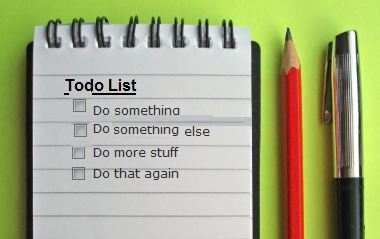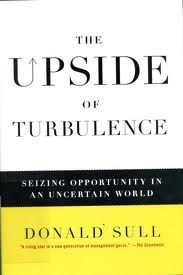Raj Shankar's Blog, page 45
July 14, 2013
What did you tick-off in your to-do list?
I am a keen user of the to-do list. And for all the gadgets I love to use, I use the A5 size notebook and a pen for my to-do. I  religiously write down all things I want to get done. There are all sorts of things on my to-do list from writing a thank you mail to planning for my next book. Usually like most others my focus is always on reducing the list as it grows. So I normally pick all the items that can be quickly ticked off and do them.
religiously write down all things I want to get done. There are all sorts of things on my to-do list from writing a thank you mail to planning for my next book. Usually like most others my focus is always on reducing the list as it grows. So I normally pick all the items that can be quickly ticked off and do them.
This weekend I was in for some surprise. I happened to work on an essay which I wanted to send to a publication. On that day I started at 4 AM and except for an hour of break to sleep in the afternoon (and the mandatory breaks in between) I worked on it till about 10 PM at the essay. I was exhausted and after mailing the work for review, I promptly went to sleep. I was absolutely fulfilled with my work.
The next morning I got up and I was back to my previous day’s list to check off items that I had completed. I was in for some serious surprise. I could only tick-off one item. And as usual a few more items got added. Oh my God! I thought to myself, how have I spent my previous day?Then the next couple of days I was back to completing lists! Enjoyed them too!
Today I sat to spend some time alone with myself doing nothing. I truly enjoy this the most!! It was during this period that this thought of “ticking-off” things came to my mind. There are days when I tick-off many items on the list but feel a sense of incompleteness and there are days when I tick just one item and feel extremely complete.
Have you had days like these? I thought about it and have promised myself to spend more and more days with lesser and lesser items on my to-do list. I will dedicate lesser days to spend on ticking off lots of items. I hope I can bring this discipline into my life. Because I realized that’s the only way I am going to be working on what I love more often than what I need to do!
How about you? What’s been your experience?


July 13, 2013
Interesting Links This Week: 14th July 2013
My favorite links of this week:
Getting up at 4 AM. It is not something that a lot of people enjoy even thinking about, let alone actually getting up. But ask the ones who do and these are some of the things they are bound to tell you. Link: http://www.fastcompany.com/3013856/how-to-be-a-success-at-everything/why-productive-people-get-up-insanely-early
Do you send a lot of emails? Are you often surprised why so little of them get responses? Here are some thoughts on this big challenge. Link: http://www.fastcompany.com/3013894/leadership-now/why-your-emails-get-replies-or-dont
Google said ‘enough’ with the Google Reader. Now Digg is saying ‘welcome’ to a reader app. How are two successful online companies seeing the same opportunity differently? Interesting read. Link: http://www.fastcolabs.com/3013918/open-company/12-difficult-questions-for-team-digg

July 12, 2013
Books and Me: Solitude
Author: Collection of Articles published by Central Chinmaya Mission Trust
This less than 100 page book is not as small as it looks. This is for two reasons:
Font Size
Depth of the Subject Matter
I picked this book because of my intrinsic interests in silence and solitude. The irony is that to describe it you need words and sounds. So every time I find material relating to the subject of silent and/or solitude, invariably it lands on my desk. To be read and contemplated on at the earliest, nudging its way to the top of my reading list.
In today’s highly interconnected world, silence and solitude are not subjects that are experienced by many. It probably does not excites or interests many because, of our tendency to be social. How can you know the world and the world know you if you are not social? Why should one experience silence? Why should one experience solitude? What are the results of the above experiences? What is its effect on the human mind? Is it worth living that way at all? These and many other questions form the basis of may articles in this collection.
The publishers of the book have brought together hand-picked writings of eminent thinkers, philosophers and realised masters. The articles are divided in three parts which are interestingly titled as ‘Purification through Solitude’, ‘Living in Solitude’ and ‘Solitude amidst the many’.
The book is a gem and anyone including the most extroverted will find connects and take-aways.


July 11, 2013
Plans don’t last!
They are not supposed to. Because plans are prepared based on number of assumptions and assumptions by nature are  risks. They inherently contain probability of not happening. So true to their nature the assumptions actually manifest in different ways than what has been visualized almost all the time. But that does not make the plans useless – they just make them redundant. Plans will become redundant because they are possible predictions of a possible future. But if plans are used as route maps rather than static snapshots, you will ensure that you redraw the plans every time one of your assumptions manifests differently.
risks. They inherently contain probability of not happening. So true to their nature the assumptions actually manifest in different ways than what has been visualized almost all the time. But that does not make the plans useless – they just make them redundant. Plans will become redundant because they are possible predictions of a possible future. But if plans are used as route maps rather than static snapshots, you will ensure that you redraw the plans every time one of your assumptions manifests differently.
This is what makes scenario planning such a wonderful tool. Can scenarios outside of what you have imagined happen? Absolutely!! But instead of worrying about what one cannot imagine, why not become more acutely aware of the possibilities within your space of work. If you constantly observe, trends reveal themselves fairly earlier than when they happen. They give you some response time, at least to move out. But being the smart people we are, we ignore all signals and stay put till its too late.
Plans don’t last, but plans that are used as tools always last. Because they are always on hand to be updated based on the reactions, responses and happenings. The reason why plans don’t last is because we don’t use them as tools at all.
Try this approach and your plans will start yielding much better results and may actually start lasting longer than they do now!


July 10, 2013
Plans gather dust
I am very surprised that this is used as as reason for skipping planning sessions. The reason people don’t invest money in  planning sessions and strategy making is because most of the time, they gather dust. But the reason they gather dust is because of only two reasons:
planning sessions and strategy making is because most of the time, they gather dust. But the reason they gather dust is because of only two reasons:
(i) They have not been developed in such a way that they degenerate into action
(ii) The team to execute it (starting with CEO) don’t have the discipline to follow it
Both of these are not the problem with planning and strategy formulation as activities. They are skill issues that can be handled by engaging the right resources. But if a company fails to address these two issues, the loss is just too large to measure.


July 9, 2013
Vedantic Wednesday: Atman and Brahman – First Part
Advaita Vedanta establishes the relationship between Atman and Brahman by reasoning what we observe as two separate  entities is pure illusion. There are two references or examples that are often quoted in the Advaita philosophy that can explain this stand point. Here is the first one.
entities is pure illusion. There are two references or examples that are often quoted in the Advaita philosophy that can explain this stand point. Here is the first one.
Light is bright and as such colorless. But when it passes through a black glass it appears dark and dull. In a similar fashion when light refracted through the blue glass produces a brilliant and bright color. Just as the light’s black and blue tints are occasioned by their respective conditionings, so too the Sat-Cit-Ananda principle seems to acquire its properties from the qualifying microcosmic and macrocosmic conditionings respectively.
If we remove the blue and the black tinted sheets, there will be only one luminous light source, in a similar manner from the conditioning of the microcosm and macrocosm, the jiva (similar to the dull black light) and the Isvara (similar to brilliant blue light) appear different, but bereft of these two conditionings what is left is the pure Sat-Cit-Ananda principle – call it Atman or Brahman as you please. The appellation does not matter. Advaita hails that luminous light source as the unifying single constant.


Planning helps more than plans
Though this seems cliche’d in hindsight, it is very different as a practice. Most entrepreneurs I meet, especially the small business CEOs detest planning. Anything abstract such as strategy, vision, planning, etc is seen as a waste of resources. They seem to know what they want! They seem to know where it is available! They seem to know how to get it! However for some inexplicable reason it always seems to elude them! So I asked why? And behold they had answers to that as well – execution, market conditions, industry forces, timing, lack of talent, lack of capital, etc
business CEOs detest planning. Anything abstract such as strategy, vision, planning, etc is seen as a waste of resources. They seem to know what they want! They seem to know where it is available! They seem to know how to get it! However for some inexplicable reason it always seems to elude them! So I asked why? And behold they had answers to that as well – execution, market conditions, industry forces, timing, lack of talent, lack of capital, etc
Do you see a pattern in this? All of these people are smart and intelligent. This made them see opportunities that most others didn’t. This led them to start enterprises. But soon after they got off the ground, they seemed to have stopped doing something right. What could be done by them in their mind and executed almost individually earlier, now requires a lot more people. And very often most of these people can’t see what these entrepreneurs are seeing. But the entrepreneur fails to see this. He / She wants people to see what they are seeing – it fails! And people around them get frustrated and disillusioned. The typical reason being they are not able to read and get what is in the mind on the entrepreneur – neither the dream nor his expectations from them. Most often this gap is mitigated if planning as a function is used.
Planning as an activity helps the core group around the entrepreneur see the vision of the entrepreneur. This group works to present their ideas on how this vision can be turned into reality. The approach and set of choices is then turned into plans. By the time the plans are turned into action items for the various members and their teams, most of them know their role in making this vision become reality. They know their contribution. This gets them charged up as individuals and enables them in turn to charge up their teams. They take ownership for what they wanted to contribute.Because as Peter Drucker says, contribution is freedom and this freedom to make it happen comes with a responsibility, but when it is by choice, it is ownership, else it is seen as a burden.
So the next time you as a CEO want to skip the planning session and directly define the goals for the company and how they are going to be achieved – think twice!


July 7, 2013
Interesting Links This Week: 7th July 2013
This week it is four and not three which made it to my top list:
A lot of the entrepreneurs and small business CEOs shy away from strategy. This is because they don’t understand it and more because they have been given a lot to misunderstand about it by people who are not so well informed about the subject. Here is a short and succinct post on “What Strategy is not?” – I would recommend CEOs to start knowing what it is not – in the hope that it will increase their curiosity to know what it could be? Link: http://ldrlb.co/2013/07/three-things-strategy-is-not/
If you are a writer of any sort (probably an artist of any sort) you may find this interesting. How can new media be used for enhancing creativity? This is an evolving area and any help is welcome. Hope you will find it as interesting as I did. Link: http://www.ohsopinteresting.com/writers-using-pinterest-for-inspiration-and-marketing-osp-episode-22/
Africa is quietly emerging. Here is another short write up on the many opportunities it could throw up to entrepreneurs. Link: http://www.gsb.stanford.edu/news/headlines/making-business-case-africa?utm_source=Twitter&utm_medium=Social%20Media&utm_campaign=bestof
Low cost may not be the best way to compete especially if you are small. So what do small and medium enterprises do to not just survive but thrive? Here is a beautiful case on what you can do!! Link: http://www.fastcompany.com/3012591/marlin-steel-metal-baskets?utm_source=twitter#1


July 5, 2013
Books and Me: The Upside of Turbulence
Book Title: The Upside of Turbulence
Author: Donald Sull
If strategy does not result in action that strategy is of little use to anyone. One of the biggest qualms against strategy has been its perceived abstractness. This is one of those books on strategy that’s definitely an exception.
Unlike books that are centered around a single framework, this book contains a whole bunch of frameworks that can be put to use by entrepreneurs as well as CEOs. Understanding turbulence has almost become a necessary skill for every business leader. What differentiates the winners from the rest is the ability to see changes quickly, be agile to handle them and resilient in responding to them. The book contains simple tools to help leaders handle all the three skills mentioned above. How reinforcing commitments results in active inertia, how ingrained traits and practices blind us from recognising anomalies, how organizational structure can help stay nimble and responsive, how agility can be achieved in a repeatable manner at all levels of the enterprise, how constantly maintaining alignment between intent and action can help build agile institutions, how to avoid corporate mid-life crisis and so on….
Each of the above aspects and many more are detailed with clear actionable advice. The discussion across all topics start at the strategic level and clearly translates to last mile tactics. At many timnes during the reading of the book, you will be forced to stop and do a quick check on some aspect of your business. Every time you do this some surprising trigger is bound to tick off. The book is filled with examples of a variety of kinds. The writing is intellectually stimulating and the style that of a true scholar. This is definetly not the easy book on strategy to read, but who said anything worthwhile is easy?


July 4, 2013
Go Organic!
I am not talking about green marketing or selling of organic products. I am making an earnest pitch to those  embracing social media to build their community, fans, tribes etc organically. In an attempt to be interesting and show ways to gain quick results number of people are recommending highly inorganic methods for growing online influence. Examples:
embracing social media to build their community, fans, tribes etc organically. In an attempt to be interesting and show ways to gain quick results number of people are recommending highly inorganic methods for growing online influence. Examples:
Paying money and buying facebook likes and/or twitter following
Following as many people on twitter as possible expecting the same reciprocation
Asking people to write positive reviews for freebies
I am sure many of you would have heard many more tips along these lines than what are stated above.
If one watches the online space and look at people who have a credible following and influence, they are all those who have developed it in an organic manner. They have taken time to pursue their passion in the offline world, share their genuine interests in the online medium, allowed their messages to take time going viral and waited for people to find them, follow them and give them permission to influence them. This in my opinion is organic strategy in social media. If you are in for the long haul you should be wise enough to ignore “Get rich quick” scheme equivalents and follow the proven sound organic strategies showcased by number of success stories.
So the next time you choose to do something in the online space, do something that you really feel about, do it creatively, do it repeatedly and reinforce it by living it offline! Influence and impact are then obvious outcomes






